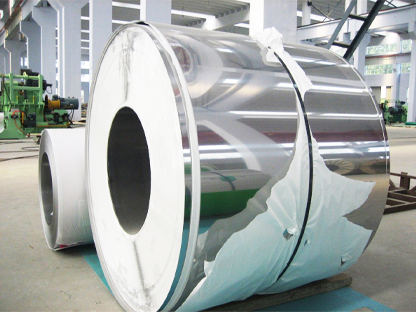
Name: Industry News
I. Current supply and demand status and risk characteristics of the industry
In 2025, China's hot-rolled coil production capacity is expected to reach 320 million tons, with apparent consumption of only 260 million tons, and capacity utilization rate continues to be below the 80% warning line. Excess pressure presents three new characteristics:
Structural imbalance: The overcapacity rate of ordinary building materials-grade products is 35%, while high-end products such as high-strength steel for automobiles still need to be imported
Regional differentiation: The inventory turnover days in North China reached 42 days, significantly higher than the industry average of 28 days
Price suppression: Q2 spot prices fell 12% year-on-year, and the gross profit per ton of steel shrank to less than 200 yuan
II. Multi-dimensional analysis of the causes of overcapacity
Supply-side factors:
Concentrated release of new production capacity during the 13th Five-Year Plan period (annual average new production capacity of 18 million tons)
Arc The proportion of short furnace process is less than 20%, and the flexibility of capacity adjustment is poor
Demand-side changes:
The growth rate of infrastructure investment slowed down to 5.2% (2024 data)
The annual growth rate of demand for plate materials in the home appliance industry dropped to 3.5%
The demand for steel for new energy vehicles has not yet formed a scale effect
Trade environment:
The self-sufficiency rate of Southeast Asian countries increased to 65%
The average anti-dumping tariff in Europe and the United States reached 25.7%
III. Systematic response strategy system
(I) Capacity optimization path
Differentiated management and control:
Establish a "red, yellow and green" capacity identification system (red line capacity is forced to withdraw)
Promote the replacement of 30 million tons of inefficient capacity with special steel production lines
Process upgrade:
Promote headless rolling technology (can reduce energy consumption by 18%)
Build a 5G+AI intelligent production scheduling system
(II) Demand-side innovation
Application scenario expansion:
Develop special steel structure assemblies for prefabricated buildings
Layout hydrogen energy storage and transportation container material research and development
Supply chain reshaping:
Build a "steel plant-processing center-end user" JIT direct supply system
Develop plate shearing processing and distribution center (target coverage rate reaches 60%)
(III) International capacity cooperation
Establish a Southeast Asian capacity cooperation park (first phase 2 million tons/year)
Develop a cross-border e-commerce platform (target export share increased to 15%)
IV. Policy guarantee suggestions
Improve the implementation rules of capacity replacement (it is recommended to set a replacement ratio of 1.25:1)
Establish a 20 billion yuan steel industry upgrade fund
Establish an industry-wide inventory early warning system (the threshold is set at 20% of annual consumption)